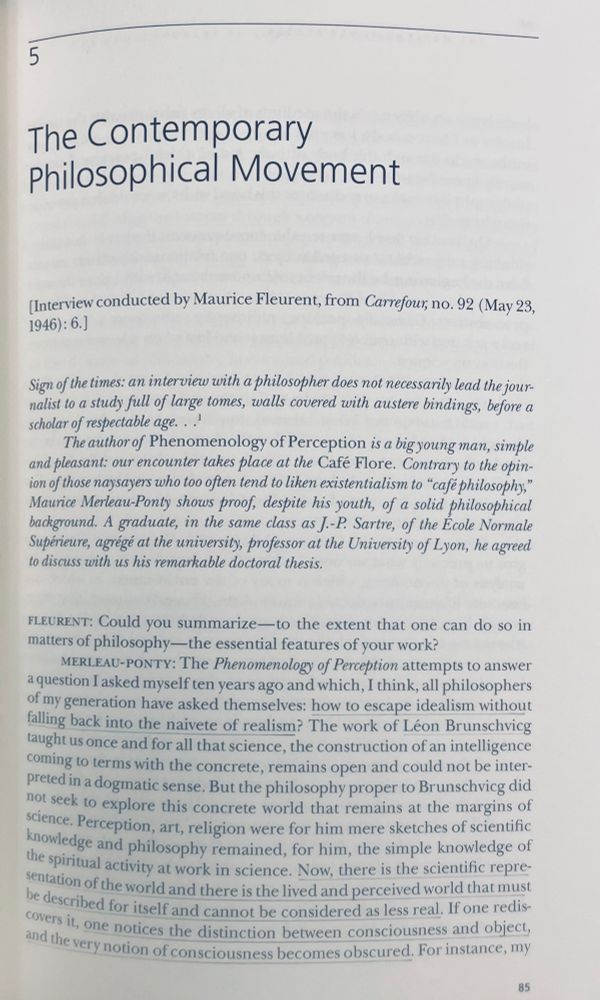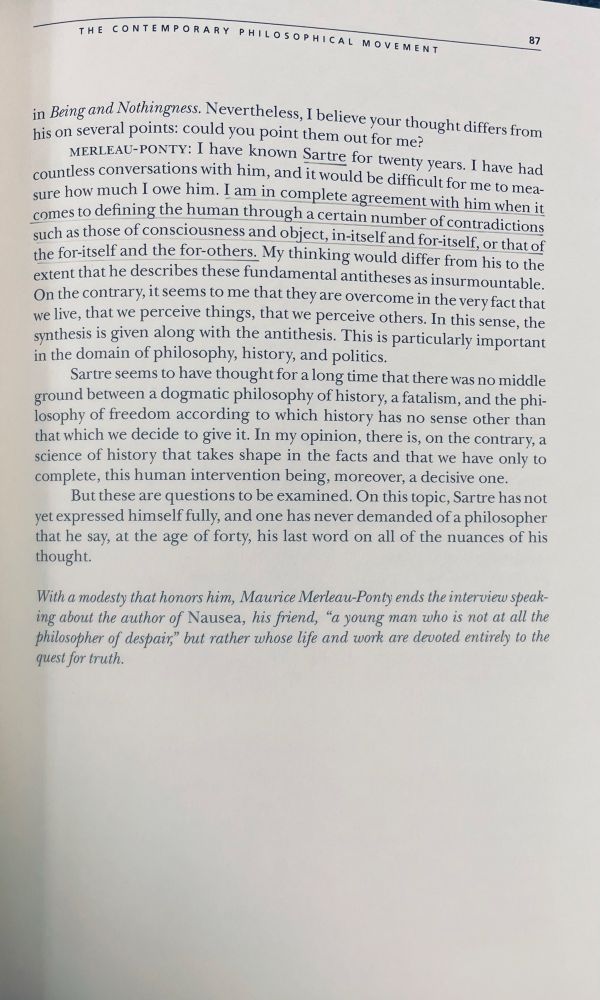Br. Gregory Morris, O.S.B
@meinradmonk87.bsky.social
100 followers
51 following
500 posts
Monk of Saint Meinrad Archabbey
The other Gregory, not the Great, but "the Father of the Fathers".
Posts
Media
Videos
Starter Packs
Reposted by Br. Gregory Morris, O.S.B
Reposted by Br. Gregory Morris, O.S.B
Reposted by Br. Gregory Morris, O.S.B
Reposted by Br. Gregory Morris, O.S.B
Reposted by Br. Gregory Morris, O.S.B











![Merleau-Ponty. The Contemporary Philosophical Movement.
“[For instance, my] body is not an object: it is the medium of all my relations with the world.
Insofar as I have a body, I am not a pure consciousness, but am engaged in the world through this body with the aid of which I perceive. I do not merely know the world; as Heidegger says, I am in the world. The role of philosophy is to make us rediscover this bond with the world that precedes thought itself.
On another level, you see the consequences: if man is not only a thinking subject but a situated subject, our relations with others cannot, from the beginning, be the relation of a pure thought with a pure thought.
They are dominated by differences of situation; classical liberal politics ap pear abstract. Generally speaking, philosophy rediscovers a "thickness" and a relation with concrete problems it had lost when it became pure reflection on science.”](https://cdn.bsky.app/img/feed_thumbnail/plain/did:plc:3nbzvaodadyyhke4z25q5elk/bafkreidl4b7d52habfjircavfsi5mmkywbetms56a3t4o74f3cecuh6npi@jpeg)
